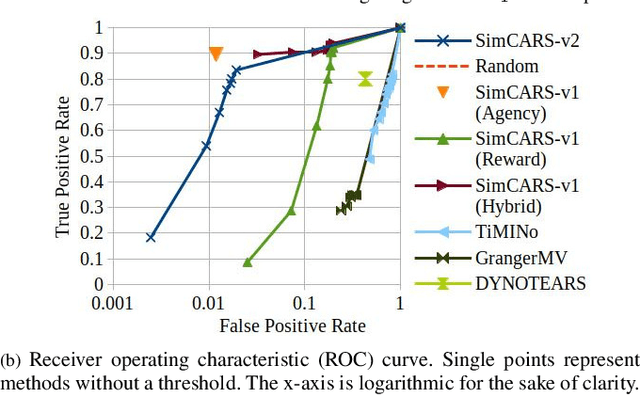Generating Causal Explanations of Vehicular Agent Behavioural Interactions with Learnt Reward Profiles
Paper and Code
Mar 18, 2025



Transparency and explainability are important features that responsible autonomous vehicles should possess, particularly when interacting with humans, and causal reasoning offers a strong basis to provide these qualities. However, even if one assumes agents act to maximise some concept of reward, it is difficult to make accurate causal inferences of agent planning without capturing what is of importance to the agent. Thus our work aims to learn a weighting of reward metrics for agents such that explanations for agent interactions can be causally inferred. We validate our approach quantitatively and qualitatively across three real-world driving datasets, demonstrating a functional improvement over previous methods and competitive performance across evaluation metrics.
 Add to Chrome
Add to Chrome Add to Firefox
Add to Firefox Add to Edge
Add to Edge